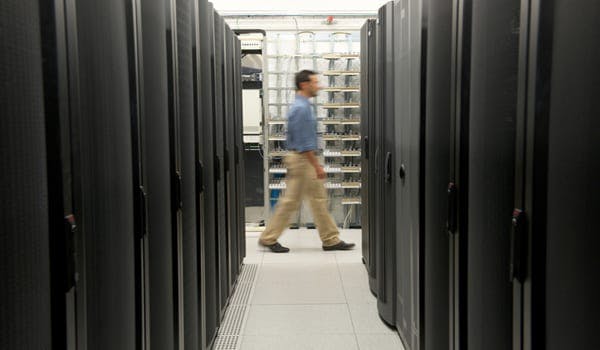The tide is firmly turning against the flexible work naysayers.
For the director of end user computing at Dell, Jeff Morris, the workplace of tomorrow is really anywhere.
“People don’t want to be bound by bricks and mortar to get their work done. Giving them the tools, or giving them the capability or empowering them to work anytime, anywhere is very important. And a lot of organisations, whether small or large, are looking at that because if you’re not, your competition is – and you don’t want to be left behind,” Morris told Dynamic Business.
Business operators not considering mobile working, teleworking, BYOD and flexible work options are facing a real risk to their business. “This is how people want to work, this is how people innovate, and this is how you compete in the marketplace of today,” Morris added.
There’s a long list of savings to be made, and Morris commented that office space, reduced energy costs, staff parking, and related staff expenses as chief benefits, alongside increased staff engagement, and length of tenure should be top of mind.
Morris cited a US-based Robert Half survey in which some 1,400 CFOs were interviewed, and telecommuting options were rated second only in importance when compared to salary in terms of attracting talent. “So people just want to be responsible for task based activity, but how they get that done in the day shouldn’t really matter so long as you’re meeting and delivering up the goals,” he said.
A new Australian research report released this month by Ironkey investigated how Australian companies are managing their data, and looked to find what inhibitors are at play in increasing flexible work options.
The data revealed that less than a quarter of Australian companies (23%) have more than 30% of their workforce working remotely.
What’s more, just 63% of Australian companies have a mobile work policy which is actively enforced. A key reason inhibiting the take-up of mobile work options is the concern of IT officers around the security of data, and intellectual property.
In fact, Australian IT decision makers rate far below the international average for having confidence that their company data is protected from loss or theft (38% in Australia versus 73% internationally).
Emerging technologies are keeping pace with the needs of the modern office, yet still many business owners simply don’t know what’s available.
One example can be seen in Imation’s IronKey hardware. Both USB devices and external hard drives are available for the secure transportation of data.
Specially designed devices allow users to run their PC from a USB stick – the entire desktop office experience is literally transportable, including the use of the main office’s printers and network connections.
Faced with the ever-increasing need to enable telework options both efficiently and inexpensively, flash-drive USB options which are windows enabled, and have the capability to be remotely disabled, offer an option to bridge the gap between BYOD, telework desires, and the need for data security.

